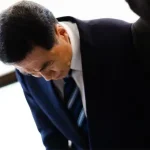What are the Points to Note in SES Contracts? Explaining the Contract Between the Vendor and the Engineer

The vendor dispatches engineers to the client’s office or other work locations based on the client’s request, and provides services.
Therefore, securing engineers is essential for SES contracts. In order to secure excellent engineers, it is necessary to conclude a contract that allows engineers to focus on their work with peace of mind.
Therefore, for vendors who are considering securing engineers for the conclusion of SES contracts, we will explain the key points to check in the employment contract to be concluded between the vendor and the engineer, which is a prerequisite for the SES contract.
What is an SES Contract?
An SES contract, an acronym for System Engineering Service contract, is a type of agreement where a vendor dispatches engineers to a client’s office or other work locations to perform tasks based on the client’s request.
A distinctive feature of SES contracts is that engineers often reside at the client’s office or other work locations to carry out their duties.
Furthermore, rather than delivering specific deliverables being the purpose of the contract, the execution of tasks by the engineer is often the main objective. Generally, SES contracts are considered to have the nature of a quasi-mandate contract (Article 656 of the Japanese Civil Code), rather than a contract for work (Article 632 of the Japanese Civil Code).
https://monolith.law/corporate/ses-contract-legal-notes[ja]
Contractual Relationships between Vendors, Engineers, and Clients
Firstly, in the contractual relationship between the vendor and the engineer, the vendor needs to secure engineers who can perform tasks at the client’s office or other workplaces.
Therefore, it is common for an employment contract (Article 623 of the Japanese Civil Code) to be concluded between the vendor and the engineer.
Alternatively, in cases where engineers prefer flexible working styles such as freelancing, a contract for work may be concluded between the vendor and the engineer instead of an employment contract. Next, in the contractual relationship between the vendor and the client, a System Engineering Service (SES) contract will be concluded.
Points to Consider in Employment Contracts
When concluding an employment contract between a vendor and an engineer under the premise of an SES, it is necessary to consider the content of the contract, taking into account that the SES contract is the basis.
In an SES contract, the engineer does not perform work at the vendor’s office or other workplaces, but at the client’s office or other workplaces. Therefore, it is necessary to clearly define the workplace.
Also, considering the relationship with the client, attention should be paid to the working hours.
Clause on Working Hours
The working hours of the engineer may vary depending on the client. Therefore, it is difficult to uniformly define them, and there may be cases where an employment contract that does not match the actual situation is concluded.
Therefore, in order to make the contract content in line with the actual situation, the following methods of stipulation can be considered.
First, if there are several patterns determined by the relationship with the client, you can explicitly state multiple patterns in the employment contract in advance, and stipulate that one of the multiple patterns will be selected.
Next, if the pattern of working hours cannot be determined in advance, it is also possible to stipulate that the working hours will be the hours designated by the vendor in accordance with the client’s regulations.
Clause on Place of Employment

A distinctive feature of the SES contract is that the engineer provides services on-site at the client’s office or other workplaces.
Therefore, it is necessary to stipulate how the place of employment will be determined.
Specifically, it is possible to stipulate that the vendor will decide according to the client’s request.
Clause on Reporting of Work Performed
In an SES contract, the engineer provides services at the client’s office or other workplaces, so the vendor cannot always check the status of the engineer’s work.
Therefore, it is necessary to stipulate that the quality of the services provided by the engineer is maintained.
Specifically, it is possible to stipulate that the vendor should report the status of the work to the engineer.
By checking the status of the work, if improvement is needed, the vendor can take measures such as issuing improvement orders to the engineer.
Clause on Confidentiality
In an SES contract, when the engineer provides services on-site at the client’s office or other workplaces, there is a possibility that the engineer’s confidential information may be involved.
Therefore, it is necessary to stipulate a clause on confidentiality in the employment contract.
However, even if a clause on confidentiality is stipulated in the employment contract, there may be cases where the engineer does not fully understand the content of the employment contract.
Therefore, as a vendor, at the time of concluding the employment contract, it is also possible to obtain a confidentiality pledge from the engineer separately from the conclusion of the employment contract.
Also, in an SES contract, the engineer will come into contact with the confidential information of many clients, so it is useful to obtain a confidentiality pledge from each client and to give a strong warning to the engineer.
Furthermore, when the engineer resigns, it is also possible to obtain a pledge to prevent the leakage of confidential information obtained during the employment contract period and to delete data containing confidential information.
Provisions on Copyright

In the case of engineers, there is a possibility that copyrights may arise in the course of performing their duties. Therefore, it is advisable to establish provisions on copyright to prevent any disputes over copyright ownership.
You may have heard the term “work made for hire”. According to Article 15 of the Japanese Copyright Law, the copyright generally belongs to the company.
Author of a work created in the course of duties
Article 15 Unless otherwise stipulated in the contract, work rules, or other regulations at the time of creation, the author of a work (excluding a program work) created in the course of duties by a person engaged in the business of a corporation or other employer (hereinafter referred to as “corporation, etc.”) based on the intention of the corporation, etc., and published under the name of the corporation, etc.’s own work, shall be the corporation, etc.
2. Unless otherwise stipulated in the contract, work rules, or other regulations at the time of creation, the author of a program work created in the course of duties by a person engaged in the business of a corporation, etc. based on the intention of the corporation, etc., shall be the corporation, etc.
The issue in relation to the employment contract, which is the premise of the SES contract, is whether there is “no special provision in the contract, employment rules, or other regulations”.
If there is no provision regarding the ownership of copyright in the employment contract, the engineer may dispute the ownership of copyright depending on the negotiations up to the conclusion of the employment contract.
Therefore, it is possible to carefully establish the following provision in the employment contract.
Article ● (Copyright)
All copyrights (including the rights under Articles 27 and 28 of the Japanese Copyright Law) arising from any results, inventions, ideas, etc. made or created in the course of providing labor by the worker shall be attributed to the employer in accordance with Article 15 of the Japanese Copyright Law.
For more detailed explanation about work made for hire, please refer to the following article.
https://monolith.law/corporate/requirements-works-for-hire[ja]
Summary
We have explained the key points to check in the employment contract that is concluded between the vendor and the engineer as a prerequisite for the SES contract.
There are aspects of the employment contract, which is a prerequisite for the SES contract, that differ from a regular employment contract, so caution is necessary.
Furthermore, given that an SES contract is planned, there will be many opportunities to handle information, so it is important to firmly establish provisions regarding information leakage.
For the employment contract that is a prerequisite for the SES contract, knowledge of labor law and IT is required, so we recommend consulting with a law firm that has specialized knowledge.
Introduction to Our Firm’s Measures
Monolith Law Office is a legal office with high expertise in both IT, particularly the internet, and law.
In order to safely utilize SES contracts, it is necessary to create a contract. Our firm handles the creation and review of contracts for various cases, from companies listed on the Tokyo Stock Exchange Prime Market to venture companies. If you have any trouble with contracts, please refer to the article below.
Category: IT
Tag: ITSystem Development





















